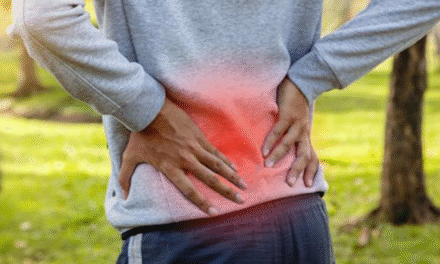Trying to get pregnant can be an exciting yet emotional journey. If you’ve been hoping to start or grow your family, you might be wondering how to get pregnant. From healthy lifestyle choices to understanding your cycle, every little bit can make a difference. And as you prepare for pregnancy, it’s also a great time to think about your baby’s future health. Many couples today are choosing to bank their baby’s stem cells with trusted services like LifeCell, which offers a once-in-a-lifetime opportunity to protect your child’s health from the impact of 80+ serious conditions right from birth.
In this guide, we’ll walk you through practical, easy-to-follow tips to help increase your chances of getting pregnant, and how to plan ahead for a healthy future.
What Is The Best Time To Get Pregnant (Fertility Window)?
To increase your chances of getting pregnant, it’s important to have sex during your fertile window—this is the time when your body is most ready to conceive. The best time to try is from 3 to 4 days before ovulation until 1 day after ovulation. This is when you’re most likely to get pregnant.
Ovulation is when one of your ovaries releases an egg. After the egg is released, it can only be fertilised for about 12 to 24 hours. But don’t worry—sperm can live inside your body for up to 5 days after sex. So if you have sex a few days before you ovulate, the sperm may already be there waiting when the egg is released.
Ovulation usually happens about 14 days before your next period starts. For many people with a 28-day cycle, this means ovulation is around the middle of the cycle. But if your cycle is longer or shorter, the timing will be different. You can figure this out by tracking your period dates and finding the midpoint of your cycle.
You can also look for signs that you’re about to ovulate:
- Cervical mucus changes – Just before ovulation, vaginal discharge may become clear, slippery, and stretchy (like egg whites). This means you’re likely ovulating.
- Body temperature changes – Your body’s resting temperature (called basal body temperature) rises slightly during ovulation. You can track this by taking your temperature every morning before getting out of bed.
Some people also use home ovulation test kits (available at pharmacies). These test your urine for hormone changes that happen right before ovulation, helping you know when you’re most fertile.
When To Consult A Doctor
It’s a good idea to talk to your doctor if:
- You’ve been trying to get pregnant for over a year without success
- You have a long-term health condition like diabetes and want advice before getting pregnant.
- There’s a chance you could pass on a condition like sickle cell disease to your baby.
- You take regular medications and want to check if they’re safe for pregnancy.
- You’re 36 or older and planning to have a baby.
Tips to Improve Your Chances of Conceiving
There are some ways you can improve your chances at getting pregnant. These are:
- Have sex near the time of ovulation: Attempt to have sex every 2 to 3 days, a few days after your period starts. This ensures that the sperm is present inside your body when your body releases an egg.
- Maintain a healthy weight: Being too thin or overweight can make it more difficult to ovulate (release an egg).
- Use fertility-friendly lubricants: Some standard lubes are poisonous for sperms. Look for ones that are safe to use when you’re trying to get pregnant.
- Take a supplement: A prenatal vitamin or a fertility supplement could prepare your body for pregnancy.
- Don’t smoke: Smoking hurts your fertility and your baby’s health. If you smoke, talk to your doctor about quitting.
- Avoid alcohol: Excessive alcohol will reduce your possibilities of getting pregnant. It is good to avoid it when trying.
- Reduce caffeine intake: One or two small cups of coffee in a day is okay. Attempt to use less than 200 mg of caffeine a day.
- Take it slow on heavy exercise: Very intense exercise sessions (more than 5 hours per week) have been shown to affect ovulation. Gentle or moderate exercise works when pregnant.
In Conclusion
Figuring out how to get pregnant can sometimes be a challenging journey. The good news is that there are many simple things you can do to help your chances. Having sex at the right time, eating well, staying at a healthy weight, and avoiding things like smoking and too much alcohol can all support your fertility. It’s also helpful to track your ovulation and stay in touch with your doctor, especially if you’ve been trying for a while.
As you prepare for pregnancy, it’s also a good idea to plan for your baby’s future health. LifeCell offers stem cell banking, which gives you the chance to store your baby’s stem cells at birth. These special cells might be useful in treating certain health conditions later in life. It’s a once-in-a-lifetime opportunity that many parents choose as part of their pregnancy planning.
Taking care of your body and making smart choices now can help give your baby the best possible start.





